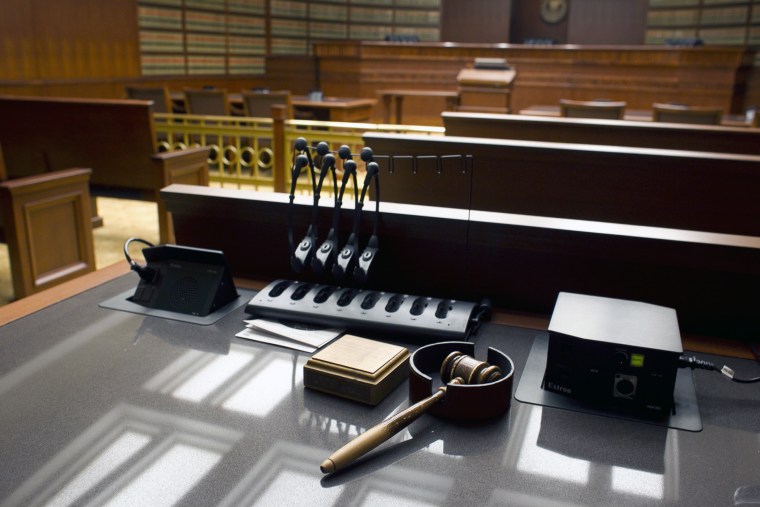For much of the right, few goals are as important as the federal judiciary. It's why Senate Republicans stole a Supreme Court seat from the Obama White House, and it's why Senate Majority Leader Mitch McConnell (R-Ky.) has all but given up on legislating, preferring instead to confirm one Donald Trump judicial nominee after another.
But just below the surface, there's a whole conservative infrastructure supporting the endeavor. Not only have GOP voters been told repeatedly to prioritize the courts above practically everything else, but there are partisan operatives whose sole focus is on identifying and vetting the "right" jurists, and ensuring they receive lifetime positions on the federal bench.
For the most part, this appears to be a one-sided fight: Democrats are little more than a speed bump for the Senate Republican majority, which has removed effectively every possible impediment to stacking the courts with ideologues.
But the New York Times reported the other day on a progressive initiative that's worth keeping an eye on.
[L]iberal activists, hoping for a chance to offset the growing conservative presence in the courts, have identified a pool of potential judicial vacancies that could remain out of Mr. Trump's reach -- scores of seats held by veteran judges appointed by Democrats who may be biding their time, awaiting the outcome of the 2020 presidential race. [...]Anticipating that at least some of those long-serving judges named by Democrats would step aside once a president more to their ideological liking took office, liberal judicial activists have begun a new effort to recommend possible successors who could immediately be funneled into the judicial pipeline. Those successors would not shift the ideological balance of the courts, but like Mr. Trump's young conservatives, they would have staying power.
The project is apparently called the Building the Bench effort, which is being financed by a group of progressive groups, and which is creating an advisory board with likeminded lawyers and law professors.
The Alliance for Justice's Nan Aron, a leading progressive advocate on judicial issues, told the Times the goal is to "start identifying people so the new president won't waste a minute in addressing this need."
That assumes, of course, that there is a new president in Jan. 2021.
If this model seems familiar, it's because it's been common on the right for quite a while. Indeed, in 2016, then-candidate Trump was only too pleased to distribute a list of conservative jurists -- compiled by groups like the Federalist Society -- letting the public know whom he'd consider for Supreme Court vacancies.
After the election, the Republican White House hardly had to do any work at all: operatives and ideologues had already put together lists of who Trump should send to the GOP-led Senate for confirmation. The president and Mitch McConnell have been happy to oblige.
For the left, Building the Bench represents a new, tactical shift, borrowing a page from the right's playbook.
What's more, by having coverage like this in the New York Times, the progressives behind the effort are sending an unmistakable message to current judges named by Democratic presidents: "Would you mind holding off a little longer before retiring?"
In the process, the folks behind Building the Bench are making a related pitch to 2020 voters: "Guess who'll fill these court vacancies if the Democratic ticket loses again?"
